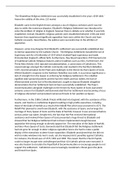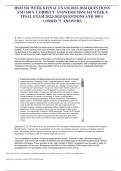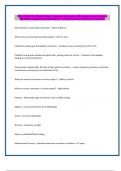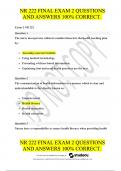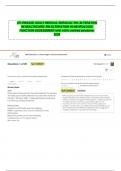Essay
Tudors Essay: 'The Elizabethan Religious Settlement was successfully established in the years .' Assess the validity of this view. (25 marks)
- Course
- Institution
- Book
AQA A Level Breadth Study: The Tudor Dynasty - Essay titled: 'The Elizabethan Religious Settlement was successfully established in the years .' Assess the validity of this view. (25 marks) Essay topics linked = Elizabeth I & The Religious Settlement, Rebellions under Elizabeth I Marked Recei...
[Show more]
